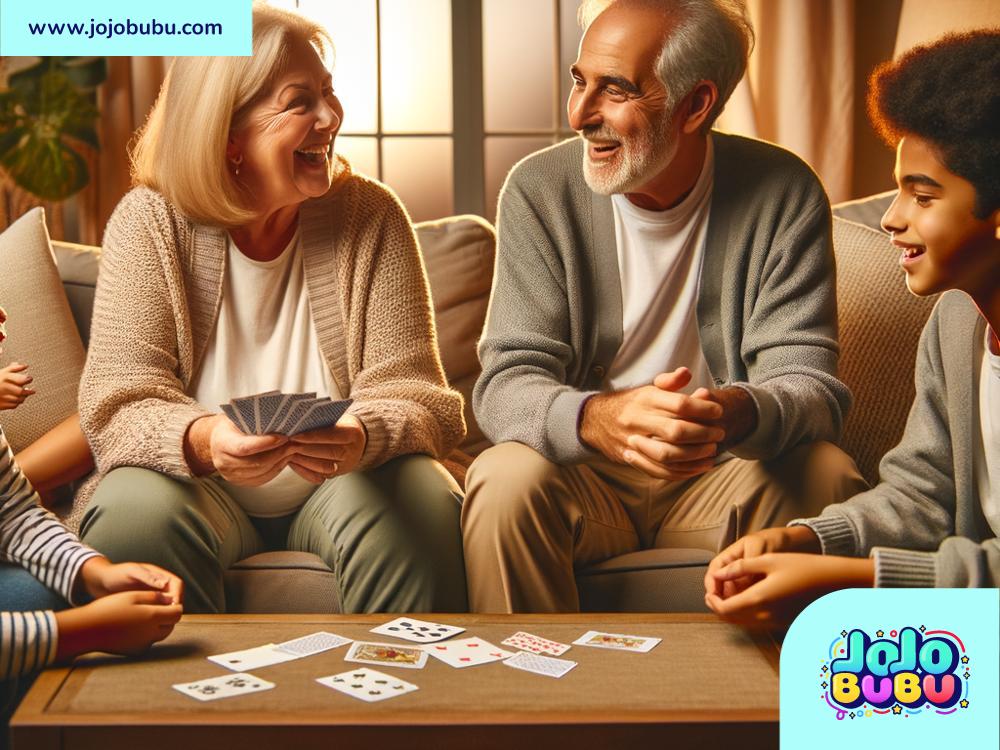Building Strong Bonds with Teens and Older Grandchildren
As young children grow into teenagers, or grandchildren grow older, the way you interact with them starts to change. They are no longer little kids who enjoy simple games or want constant attention. Instead, they are developing their own personalities, interests, and independence. While this phase can be exciting, it might feel challenging at times for parents or grandparents who want to stay connected. However, bonding with teens and older grandchildren is still possible—and it’s incredibly rewarding. Here are some simple ways to create strong and lasting relationships during these important years.
Understand Their World
Teens and older grandchildren are navigating a complex phase in life. They’re figuring out who they are, building friendships, and dealing with pressures like school, hobbies, or even social media. One of the most powerful ways to bond with them is to show that you respect their world. Ask questions about their interests without judgment, whether it's about their favorite music, sports, or even video games. You don’t have to be an expert on everything they like, but simply showing curiosity can help bridge the gap.
For example, if your grandchild loves photography, ask to see their favorite pictures. If your teen is a fan of a certain movie series, offer to watch it together. Taking time to understand what matters to them shows that you care about their lives.
Listen Without Judging
One of the biggest complaints teens might have about adults is, “They don’t listen to me.” Listening is a skill that goes beyond just hearing words; it's about truly paying attention and not jumping in with advice or criticism. If your teen or grandchild talks to you about their problems, resist the urge to immediately “fix” everything. Instead, acknowledge their feelings and let them know you’re there for them.
For instance, if a grandchild says they’re stressed about school, you can say something like, “That sounds really tough. I'm here if you ever need someone to talk to.” This simple act of listening creates trust and makes them feel valued.
Make Time for One-on-One Activities
The teenage years can be busy, with sports practices, school assignments, and social commitments filling up their schedules. Still, carving out time for one-on-one moments can make a huge difference. These activities don’t need to be fancy or expensive—they just need to focus on spending quality time together.
For example, offer to go out for ice cream, take a stroll at the park, or even spend time cooking a favorite meal together. If they enjoy a specific hobby, ask if you can join them or learn more about it. These small interactions provide a chance to chat, laugh, and deepen your connection.
Be Supportive and Encouraging
Teens and older grandchildren are often figuring out who they are and building their self-confidence. Life during these years can feel overwhelming, especially as they face challenges or make personal decisions. One of the best ways to bond with them is to be their cheerleader—support their dreams and efforts.
If your grandchild wants to learn a new skill, encourage them and offer help if needed. If your teenager is struggling with self-confidence in a particular area, remind them of their strengths. Showing encouragement doesn’t mean forcing them to do something, but rather supporting their choices and being there for them through both successes and failures.
Share Your Stories
While teens and older grandchildren are growing into their own identities, they’re also curious about the adults in their lives. Sharing stories from your own younger years can be a wonderful way to connect with them. Talk about your experiences in school, the hobbies you enjoyed, or even the mistakes you made and learned from. This helps them see you as someone who understands what it’s like to grow up.
For instance, if your teen is nervous about making new friends, you could share a story about how you handled a similar situation when you were their age. Sharing personal memories shows them that you’re human too and can relate to their challenges.
Respect Their Boundaries
As kids grow older, they naturally crave more independence. It’s important to respect their boundaries and understand that they may not always want to spend time with you. Don’t take it personally—this is a normal part of growing up. Instead, focus on creating an open, welcoming environment so they know they can come to you when they’re ready.
Offer opportunities to spend time together without forcing them. For example, you could say, “I’m planning to go for a walk later. If you’re free, you’re welcome to join me.” This keeps the door open without pressuring them.
Show Patience and Love
Bonding with teens and older grandchildren takes time. There will be ups and downs, but patience and consistent love will help strengthen your relationship. Even if they don’t always express their feelings openly, your support and kindness mean more to them than you realize.
Final Thoughts
Building strong bonds with teens and older grandchildren plays an important role in their lives—and yours too. It’s an opportunity to create lasting memories, lend support, and share your wisdom. By listening, showing interest, and spending quality time together, you can nurture deep connections that will remain long after these years pass. Always remember: the key to bonding is love, patience, and understanding. Whether you’re a parent or grandparent, your efforts will pay off with relationships that grow stronger over time.

